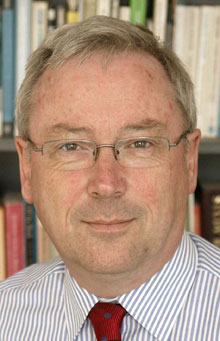
by Toru Yamamori | Aug 9, 2015 | News
Seongnam city is considering implementing a ‘Youth Dividend’, based on the idea of a basic income. If it happens, it will be the first case in Korea.
The city(성남시 城南市)is located about 20 km south from the centre of Seoul, and has a population of around 980,000 in its 142 square kilometers of land.
The mayor, Lee Jae-myeong (이재명) has been keen for poverty reduction. With his initiative, the city considers an introduction of a ‘Youth Dividend’. Although the idea is inspired by a universal and unconditional basic income, the detail of a ‘Youth Dividend’ is not decided yet. The city commissioned to an external agency for research on feasibility of implementation of it last June.
*This news is written based on the following news and information from some Korean Friends including Smila Youhyung Park (스밀라): https://www.yonhapnews.co.kr/bulletin/2015/06/19/0200000000AKR20150619178800061.HTML
The image of map is from https://www.seongnam.go.kr/EN/

by Toru Yamamori | Aug 8, 2015 | News
Jeremy Corbyn, front running candidate to be the next Labour Party leader, has recruited Richard Murphy, an advocate of basic income, to draft his economic policy.
Corbyn, a 66-years-old MP, not especially prominent in Westminster politics, has recently gotten tremendous media attention on account of his unexpected initial success in getting support for his candidacy for Labour Party leader, coupled with mainstream Labour politicians’ panic reaction against precisely this (Tony Blair, for one, has advised Corbyn supporters to get a heart transplant).
Although Corbyn himself hasn’t spoken on basic income yet, there have been some speculations as to whether he could possibly support the idea — namely: ‘Why Anti-Austerity Needs The Basic Income: SNP, Jeremy Corbyn?’ and ‘Universal Basic Income: How the Labour Party could stand up for workers, help the poor and be pro-business’.

Richard Murphy, Tax Research UK
It is good news for basic income supporters that Richard Murphy is involved in drafting Corbyn’s economic policy.
Murphy, an economist at Tax Research UK, is also an advocate of basic income and co-author (with Howard Reed) of ‘Financing the Social State’ (pdf), which recommends the implementation of basic income in the U.K. This policy paper was published in 2013 by the Centre for Labour and Social Studies.
Corbyn hasn’t published his detailed economic plan other than providing a brief outline. Despite this, The Daily Mail, The Times, to cite a few, have already termed it the derisory ‘Corbynomics’.
Will basic income be included in ‘Corbynomics’ (which I am using the term without ridiculing tone)? Will Corbyn win the Labour Party leader contest? We will know by the autumn. The party’s internal vote will begin Friday 14 August and close on Thursday 10 September, with the results being announced on Saturday 12 September.
Credit Picture: CC Chris Beckett
*Minor editing for a link and for responding one of comments below on 10th August

by Toru Yamamori | Jun 8, 2015 | News
Gender Research Centre at University of Bristol organizes a seminar on feminism and Citizen’s Income, with Centre for East Asian Studies (University of Bristol) & FSSL Family and Parenting Research group (University of Bristol).
‘Feminist Way to Citizen’s Income: Claimants Unions and Women’s Liberation Movements in Britain 1968-1987’
Time & Date: Wednesday June 17th @ 16.00
Venue: G2 (1st Floor), 10 Priory Road, University of Bristol
https://www.bristol.ac.uk/maps/google/
Speaker: Toru Yamamori
Abstract: At the 9th National Women’s Liberation Conference held in London in 1977, a resolution which asked the whole of the British Women’s Liberation movement to endorse a citizen income (an unconditional basic income) was passed with majority vote. However, this fact appears not to have been properly recorded in any academic literature. The resolution was raised by women in the Claimants Unions Movement. The paper is based on oral historical research and looks closely at their activism, especially their intersections with other feminists and their articulation of the citizen’s income demand.
Toru Yamamori is a professor at Doshisha University, Kyoto, Japan, and currently a visiting fellow at the University of Cambridge, where he works on two projects: Gender, Class and Race in discourse on Basic Income in 1970s Britain, and History of Economic Thought on Need. His past publications were in various disciplines and the common question behind them was how feminist and other social movements have challenged the philosophical foundation of economics. He was a founding member of the Japanese Association for Feminist Economics, and is a member of the Basic Income Earth Network.

by Toru Yamamori | May 18, 2015 | Research
Abstract:”The long-term vision of economic security and social participation for people with a disability held by disability activists and policy-makers has not been realized on a global scale. This is despite the implementation of various poverty alleviation initiatives by international and national governments. Indeed within advanced Western liberal democracies, the inequalities and poverty gaps have widened rather than closed. This article is based on findings from a historical-comparative policy and discourse analysis of disability income support system in Australia and the Basic Income model. The findings suggest that a model such as Basic Income, grounded in principles of social citizenship, goes some way to maintaining an adequate level of subsistence for people with a disability. This article concludes by presenting some challenges and a commitment to transforming income support policy.”
Jennifer M. Mays, “Countering disablism: an alternative universal income support system based on egalitarianism,” Scandinavian Journal of Disability Research, 2015.

by Toru Yamamori | May 17, 2015 | News
Leon Schreiber, Ph.D. Candidate in Political Science, Freie Universität Berlin, argues BIG as ‘silent revolution’.
Leon Schreiber, “Small Yet BIG: The Basic Income Guarantee,” The Huffington Post, 23 April 2015.







